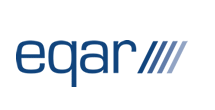Work programme 2012-2015
10th EQAR General Assembly
EQAR's 10th General Assembly was held in Amsterdam on 7 March, hosted by the Dutch EU Presidency, in conjunction with the BFUG meeting on 7-8 March.
Representatives of 38 EQAR members convened to review and adopt, among others, the EQAR Self-Evaluation Report as well as a number of recommendations directly resulting from the self-evaluation process.
Apart from recommendations on how to further improve or expand current practices, two distinct objectives came out of the self-evaluation exercise and were directly taken forward into the Work Plan:
- To study the feasibility of a database of higher education institutions and programmes that have been subject to quality assurance by registered agencies.
- To establish or clarify the position of a president in order to raise the visibility of EQAR and to enhance stability and leadership internally.
EQAR will prepare concrete, operational proposals on both topics which will then be discussed at the Members Dialogue in Oslo in November 2016.
The General Assembly elected the following Executive Board for a two-year mandate as per 1 April 2016. According to the agreed annual rotation, the Executive Board will assume the following functions:
- Re-elected: Tia Loukkola (EUA) - President
- Re-elected: Fernando Galán Palomares (ESU) - Vice-President
- Re-elected: Maria Kelo (ENQA) - Vice-President
- Newly elected: Johan Cloet (EURASHE) - Treasurer
Download the EQAR annual report 2015 from the EQAR website
Download the EQAR self-evaluation report from the EQAR website
EQAR
In most European countries, higher education institutions or study programmes are subject to regular external review by a quality assurance agency. The European Quality Assurance Register for Higher Education (EQAR) is a register of such agencies, listing those agencies that have demonstrated their substantial compliance with a common set of principles for quality assurance in Europe.
EQAR was founded in 2008 from an initiative of the Bologna Process. EQAR has a similar status to the consultative members (non-voting member of the Bologna Follow-Up Group - BFUG), but has so far not been officially named consultative member.

